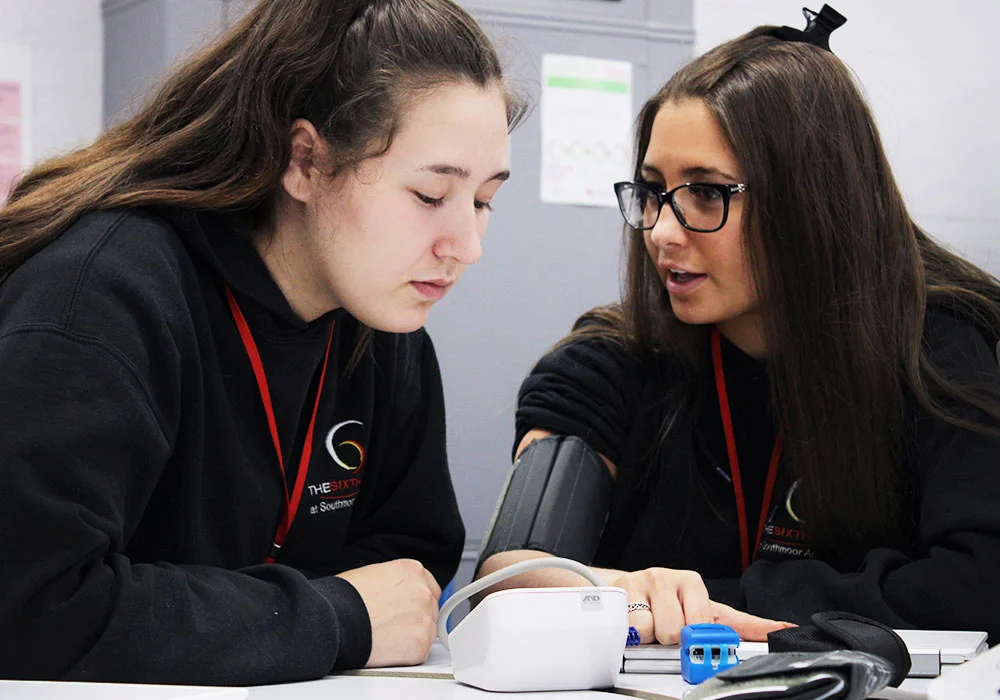
Health and Social Care represents one of the biggest sectors for potential employment in the North East, and with 100% A/A* last year, our students are perfectly placed to take advantage of this. You will learn a huge range of skills, and equip yourself for degree level study in fields ranging from Nursing and Midwifery to Primary Education. We offer two possible routes in Health and Social Care.
This qualification isn’t just about caring for babies or the elderly and the ill; it will provide learners with the skills, knowledge and understanding to progress into Higher Education on a health and social care-related programme. You will learn a huge range of skills, and equip yourself for degree level study in fields ranging from Nursing, Social work, Midwifery to Primary Education.
The Extended Certificate is the equivalent of an A-level, and should be taken alongside two other subjects.
The Extended Diploma is the equivalent of 3 A levels, and is taken on its own. You will follow a combination internally coursework assessed units and external examined units.
or both, you will follow a combination internally coursework assessed units and external examined units. This qualification is graded Pass, Merit, Distinction, Distinction*.
Entry Requirements
GCSEs at Grade 4 or above preferably including GCSE Mathematics, GCSE English Language and GCSE Science
The Technical Level 3 Extended Certificate in Health and Social Care shares six units, and provides direct progression to apprenticeships, university and employment.
You will study 4 mandatory units:
- Building positive relationships in health and social care.
- Equality, diversity and rights in health and social care
- Health, safety and security in health and social care
- Anatomy and physiology for health and social care
These units will give learners an understanding of health and social care in the wider contexts of different environments and settings where care takes place, the importance of effective communication in health and social care, the importance of legislation in health and social care and how to deliver a person-centred approach in the care given. Learners will also develop transferable skills such as communication, research, planning and organisation.
Plus an additional two units from a selection of optional units.
Learners will take 17 or 18 units, made up of 10 mandatory and 7/8optional units.
You will study 10 mandatory units:
- Building positive relationships in health and social care
- Equality, diversity and rights in health and social care
- Health, safety and security in health and social care
- Anatomy and physiology for health and social care
- Infection control
- Personalisation and a person-centred approach to care
- Safeguarding
- Promote positive behaviour
- The impact of long-term physiological conditions
- Research methods in health, social care and childcare
These units will give learners an understanding of health and social care in the wider contexts of different environments and settings where care takes place, the importance of effective communication in health and social care, the importance of legislation in health and social care and how to deliver a person-centred approach in the care given. Learners will also develop transferable skills such as communication, research, planning and organisation.
Learners will then select additional units from a range of 15 optional units. These optional units will give learners an appreciation of workplace practices and an understanding of how to promote and support a healthy and active lifestyle.
Plus an additional eight units from a selection of optional units.
